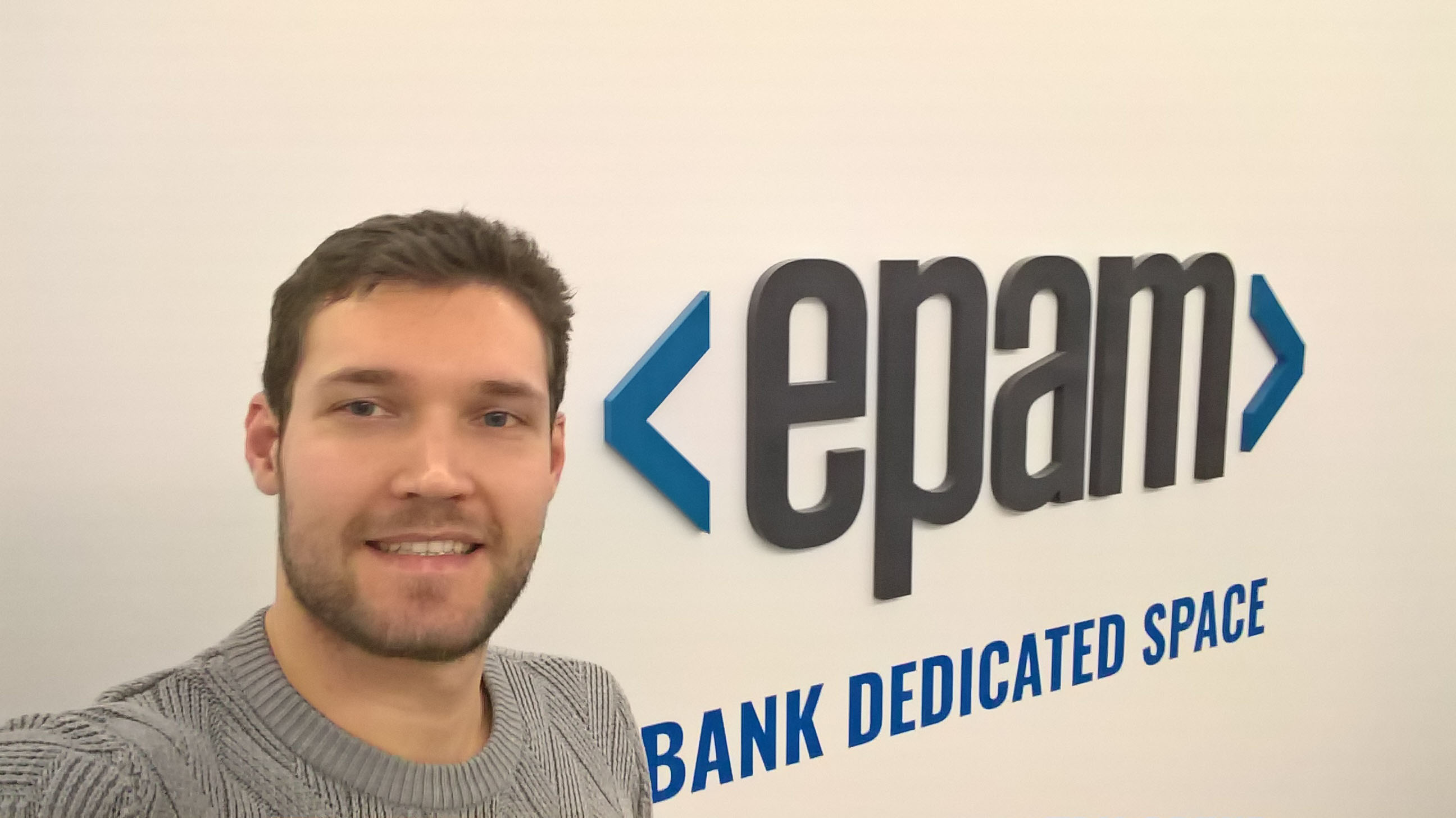10 Questions For Our Coach, Oleksandr Martynov
News:
What do you think of when you hear the word “coaching”? Does a coach mean a teacher, mentor, trainer, motivator or therapist? Coaching is currently a big trend, but what is it exactly and how does it differ from consulting or therapy?
EPAM sees coaching as a way to grow and develop our employees. We spoke with Oleksandr Martynov, Software Engineering Team Leader at EPAM and a certified coach to discuss his thoughts on coaching. Oleksandr is a member of the International Coach Federation with more than four years of experience working with more than 20 clients.
Oleksandr’s journey to coaching started with a book “Coaching for Performance”, which jumpstarted him on the path from critic to a coach.
Oleksandr, what is coaching? Why is it a useful tool for a workplace?
There are millions of definitions of coaching, and each one stresses a certain aspect of the coaching process. For me, coaching is about creating a thinking space where the client can grow and transform. It’s a bit theoretical and abstract until you have tried it yourself.
Basically, coaching is a conversation. The difference is that when we discuss issues with friends, we tend to give advice by saying “that worked for me”. Instead, coaches let people think about the questions and listen. They do not give answers or advice, they ask, “What do you think?”
When you are in problem-solving-mode, you don’t pay attention to what’s going on. You can burn out fast. Emotional intelligence is important, especially to IT experts. Coaching (with the right questions) can make you look at things from a different perspective.
Coaching is a creative partnership: you can find new ways to resolve conflicts by yourself. It empowers you to find your own solutions.
Here’s what one of my mentees shared about coaching:
“...coaching turned out to be one of the best instruments for increasing efficiency and productivity. The value of coaching is in the process of uncovering and delayering, which brings the essence of the problem to the surface.”
Who is a coach?
A coach is someone who listens, understands and asks the right questions – someone who takes you seriously, gives you room to explore, test and develop yourself.
A coach motivates and challenges you and believes in you. A coach sets reachable goals and keeps the overall goal in mind.
So, a coach is a strategic thinking partner, since people sometimes need just a person to think “with”.
What coaching opportunities are available at EPAM Prague? How can I enroll?
There are several opportunities that our employees can benefit from. The first is a one-on-one coaching session. We have an internal resource where EPAMers can explore different coaches’ profiles.
EPAM also has a managers’ coaching program, where you participate in a training on one of our internal e-learn portals and a coordinator will help you find a coach. For this program, the coach, mentee and manager discuss and sign a coaching agreement with coaching goals. After the coaching agreement is signed, you start working with a coach confidentially.
Finally, there’s a coaching club in Prague that is a monthly open meeting. We are still investigating the best format and approach for this club. To date, we’ve hosted five meetings in Prague that have included talks and discussions (both theoretical and practical focused), demo sessions and workshops.
One of the EPAM mentees shared, “Asking questions helped me realize my priorities and face my fears. Each meeting motivated me and kick-started my brain to think and analyze everything.”
What results, benefits, skills, etc. can I achieve through coaching? What should I expect?
It’s important to keep in mind that coaching is driven by the clients or mentees receiving the coaching. The responsibility and decisions stay with the client.
Coaching helps you think deeper, reflect on what’s going on, gain insights and creative new ideas. Coaching helps you stay accountable and responsible to achieve your goals. Coaching is effective and sustainable because it deals with emotions. Without realizing your emotions, it’s complicated to understand what really drives you.
I usually ask, “Why is that important to you?” An increase in emotional intelligence (EQ) can be a main goal of coaching or a by-product of coaching.
One of my mentee’s said, “The result I got was a clearer vision of myself, my values, my goals, as well as a clear detailed plan with a timeline to move in the right direction.”
What is an aha-moment in coaching?
It’s hard to predict this insight beforehand. It’s not necessarily important to have this aha-moment. What is important is to translate this aha-moment into real change.
Here’s what one of my mentees said about their aha-moment: “The best part of a coaching session for me is the aha-moment. This is the very moment when you realize that all barriers are gone. The new insight gained creates new energy and momentum to move forward and make impossible things happen.”
How can coaching help me in my professional development?
Coaching can be useful in various ways:
- Helping set goals, evaluate and commit to them
- Enabling the hidden potential of employees to achieve business goals
- Unlocking a person's potential to maximize performance and awareness
One of my clients said, “I’ve learned to define and concentrate on priority goals. This helps me excel in everyday scenarios at work. I am feeling much calmer and motivated to succeed.”
How many coaching sessions do I need?
Coaching is an on-going process as change does not happen overnight. A coach needs to help a client translate insights into action. That’s a crucial difference compared to therapy: coaching is short-term work that leads to action and change. Change usually happens over two-three months and it is deliberate practice. But I also have a client who has been promoted after the first session. So, if a person is mentally prepared, it could be enough to have two or three sessions.
One of my clients said, “I identified my weak areas and created a list of goals to cover gaps. I know that with some additional support from my coach I can find the right solution for any situation. I faced a lot of challenges during this period and solved them.”
Is there a way to make a quick self-assessment in order to understand if you need coaching?
It’s hard to talk about coaching – it’s better to experience it.
There are however a few questions you can ask yourself:
- How do I develop?
- Who is going to be my champion (a person who is there for you)?
- What is going to happen if I don’t change? What’s going to be different?
If you don’t know the answers to these questions, you can consider several options, and coaching is one of them. However, you need to bring your full self to the session, because we’ve found that scratching the surface won’t help.
When is the best time to try coaching?
I didn’t come up with this quote, but I believe “The best time to start was yesterday. The second-best time is now.”
Want to try coaching? Then visit our coaching club in Prague!













